Mr. Takashi Genda, Commissioned Officer Ret/Major General JASDF、Regional Director of Reven International, Professor Yuji Uesugi of Waseda University, Professor Mayumi Yamada, Ritsumeikan University and Ms. Yuko Sakurai, Former Deputy Director of the Economic Treaty Division of the Ministry of Foreign Affairs of Japan and Member Fukuya Total Law Offices participated in the Conference along with Mr. Sukehiro Hasegawa, President of the Global Peacebuilding Association of Japan, Director of the Academic Council on the UN System (ACUNS) Tokyo Liaison Office, and the Executive Director for Academic Exchange of the United Nations Association of Japan. Mr. Takakazu Ito, Senior Programme Officer of the Department of Operational Support represented the United Nations at the conference.
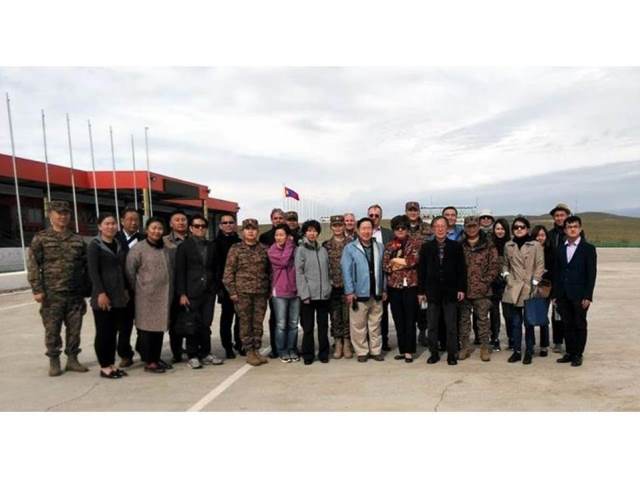
Introductory Session:
Mr. Takakazu Ito (UN) opened the meeting by providing a comprehensive briefing on the Action for Peacekeeping (A4P). He stressed the importance of all peacekeeping stakeholders including Member States, UN Secretariat, international and regional organizations, and the civil society doing their part to strengthen and improve UN peacekeeping.
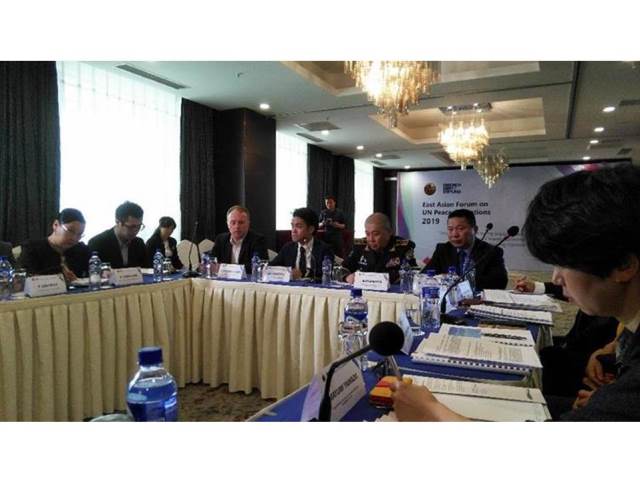
Session 1: Strengthening coherence, sequencing and prioritization of mandates
Mr. Zhu Qiang (China) pointed out the necessity of clear and feasible mandate, and of sharing the situation correctly among the fields and HQ, mentioning the reasonable review process of mandate.
Mr. Sukehiro Hasegawa (Japan) emphasized that the cooperation of each actor is essential to achieve the goal and that to cooperate closely, information of each actor have to be shared through dialogues. He also explained the importance of professionalism in today’s challenging Peacekeeping operations.
Ms. Park Soon Hyang (Korea) also recalled the participants the necessity of clear and specific mandate and of the review of mandate to fit changing situation of ongoing mission through triangular consultation (by SC, TCC/PCC, and Secretariat).
Mr. Bat-Erdene Batkhuu (Mongolia) mentioned the protection mandate as a feature of recent Peacekeeping operations and declared that; to implement protection mandate, we must strengthen partnership with regional organizations, include the factors tend to exclude from the political process. Strategic comprehensive approach is also vital.
[Discussion] All speakers referred to the importance of cooperation for streamlining the missions.
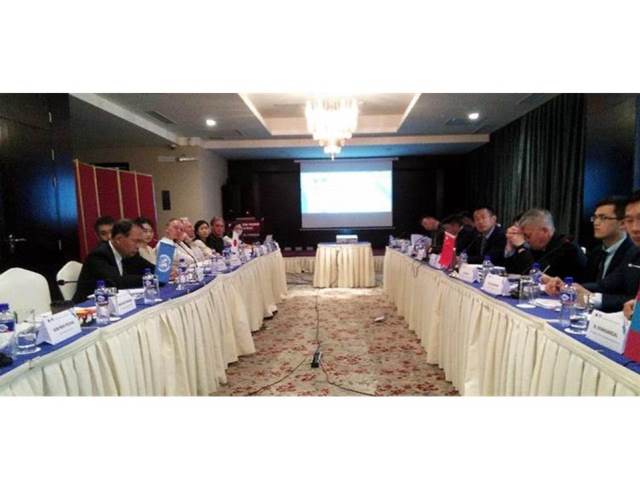
Session 2: Coordination mechanism related to training and capacity building including training materials and standards matching operational requirements
Mr. Takashi Genda (Japan) introduced the cooperation between Japan and Mongolia over training and capacity building represented by Exercise Khaan Quest 2018, and underlined the efficiency of sharing experiences and skills internationally in standard matching comprehensive capacity building.
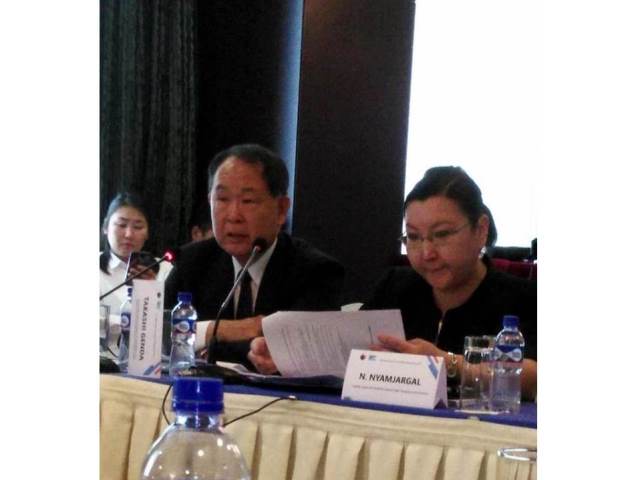
Mr. Kim Pan Young (Korea) suggested the difficulty of providing sustainable and needs-conforming training, for special skills which are not available in usual training are needed in Peacekeeping mission and the needs are changing under situation. He therefore proposed the concept of technology-based training and regional network for effective and sustainable training/capacity building.
Ms. Nyamjargal Nergui (Mongolia) highlighted the need to fit the operational requirement and the required training is vary from each nation’s military according to their skills. She noted the gap between performance and skill should be identified, and current training should be assessed, recognizing the importance of high mobility, agility, and capacity is essential to efficient use of resources.
Mr. Liu Chao (China) pointed out the redundancy of training can be reduced and optimized by sharing experiences and best practice internationally, mentioning Member States’ responsibility for pre-deployment training to be shared.
[Discussion] Participants, agreeing with the idea of cooperation in training, discussed to what range international cooperation in training could be realistic, considering the confidentiality army information.
Session 3: New approaches to improve force generation, equipment serviceability and sustainability including co-deployments
Mr. Kim Pan Young (Korea) listed 5 elements; equipment, technology, intelligence, medical, and bases, as the keys to cope with unprecedent and unpredictable thread in today’s Peacekeeping operation with minimum casualties.
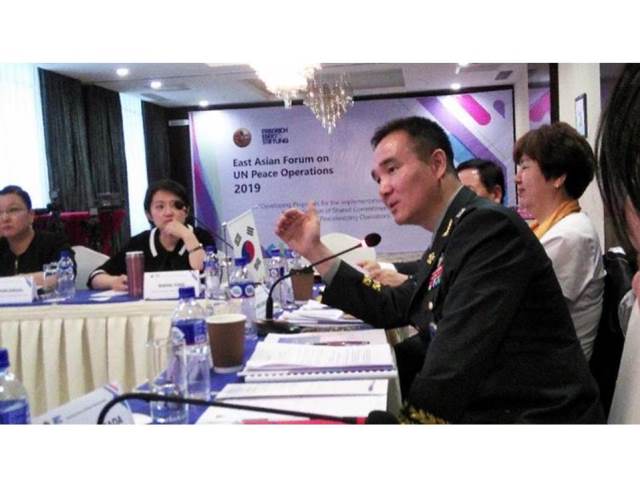
Mr. Enkhbold Rentsen (Mongolia) presented 3 issues as the challenges in today’s Peacekeeping operation; rapid deployment, managing host nation, and assessing new technology. For each issue, cooperation is crucial to maximize the force. He gave an example that Mongolia greatly benefitted in sea transportation by China in co-deployment, since Mongolia, as a landlocked country, doesn’t have major maritime equipment.
Mr. Zhu Qiang (China) suggested that the comprehensive improvement on multiple dimensions is needed to address force generation. Especially leadership including mentoring skills is becoming more important. Also, the corporation is important here too.
Mr. Takakazu Ito (UN) gave a presentation on the UN “Triangular Partnership” launched in 2015 to strengthen UN peacekeeping by addressing capabilities gaps in training and equipment. The “innovative” initiative which was mainly targeting engineering capabilities needs in African TCCs in its first year has now expanded to additional capability areas including signals and medical as well as additional geographical area, notably Asia. With the support of partner Member States, this new UN project succeeded in assisting TCCs deploy their units to UN peacekeeping missions with the necessary training and equipment.
[Discussion] Productive discussion was made on the bases of the concrete proposals and examples speakers gave.
Session 4: Developing an integrated performance policy framework
Ms. Nyamjargal Nergui (Mongolia) highlighted that integration is crucial today, since most of the recent Peacekeeping missions have protection mandates (POC etc) and consist of military, police, and civilian personnel. She provides that each component must understand their own work, other components’ work, and how these interact, recognizing all components share one goal (mandate). She reiterated the importance of identifying gaps and assessing current training activities and mechanism.
Mr. Liu Chao (China) presented that capacity building of TCC should be prioritized. For that, support of regional organizations as AU actively and pre-deployment visit to validate TCC’s capability are of the effective ways. In addition, transparency is essential to develop a balanced integrated performance policy framework.
Mr. Yuji Uesugi (Japan) pointed out comprehensive problems surrounding today’s Peacekeeping operations such as the lack of focus on the local people and the inadequate accumulation of expertise in training on trainer stem from the personnel administration system.
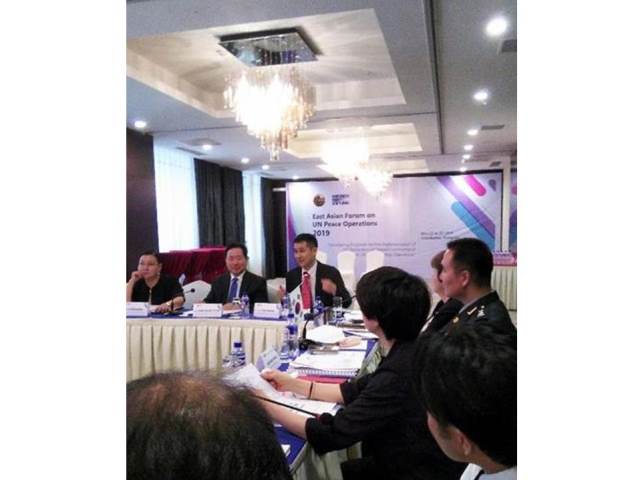
Ms. Park Soon Hyang (Korea) gave some suggestions on how to improve performance in Peacekeeping mission, such as multi-dimensional corporation by strong leadership and data driven enforcing.
[Discussion] The comment was made here the voice of stakeholders is the key to the way forward, suggesting that each actor has own interest, position and role.
Session 5: Developing a clear, comprehensive and transparent procedure on caveats
Ms. Wang Ying (China) analyzed the main cause of caveats (demanding and multifaceted mandates, limited budget and resources, and emerging threads in the mission) and suggested the possible solutions to lessen caveats (improvement of mandate, capacity-building partnership etc.).
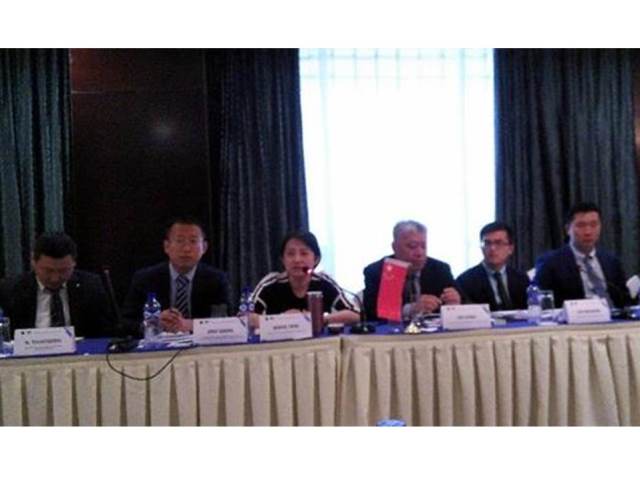
Ms. Mayumi Yamada (Japan) stated that the meaning or scope of caveats become unclear when mandate changes and it may lead the contingents to confusion and disfunction. She pointed out that caveats should be shared widely among the whole UN structure and understood precisely not to lose flexibility of the operation under changing situation.
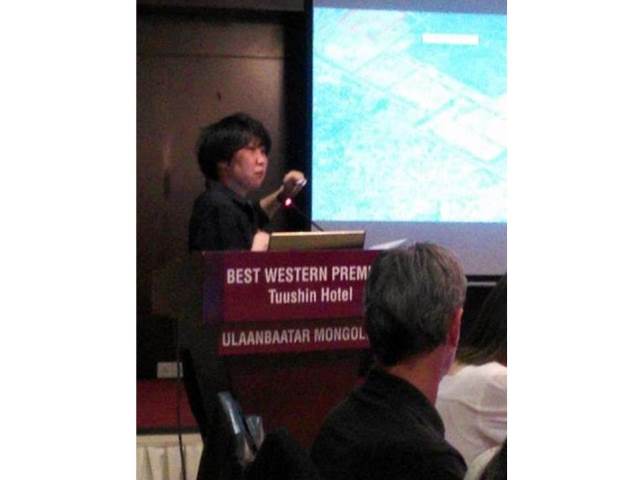
Ms. Park Soon Hyang (Korea) put her point on the need of setting clear definition of caveats in UN so that all actors can share clear policy and procedure on caveats in UN. She also noted that caveats should clearly presented in detail in the beginning of troop deployment.
Mr. Buyanbat Turkhmunkh (Mongolia) stated that when commandar makes decision the caveats matter. To enable contingents act flexible even under the caveats, greater contingency planning as well as high-quality management of the mission is crucial.
[Discussion] Participants, recognizing caveats as obstacles of mission, made realistic discussion with placing caveats as a given premise.
At the end of the concluding discussion, the participants held a group photo session.
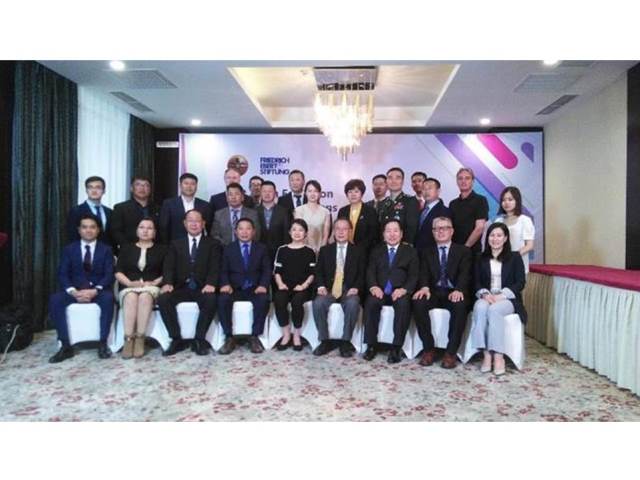
Thursday, May 23
8:45 h Welcome, Opening and Introduction of Participants
Mr. Badambazar Jambaa, Major General, Deputy Chief of the General Staff of the Mongolian Armed Forces
Facilitation: Mr. Niels Hegewisch, Resident Representative, FES Mongolia
9:15 h Introduction on the most recent developments on the Action for Peacekeeping
Mr. Takakazu Ito, Senior Programme Officer, Department of Operational Support, United Nations
9:30 h Session 1: Strengthening coherence, sequencing and prioritization of mandates
Facilitation: Mr. Bat-Erdene Batkhuu, Colonel, Chief of Peace Support Operations’ & Military Cooperation Department (PSOMCD), General Staff, Mongolian Armed Forces
Suggestions by (15 minutes each):
•China: Mr. Zhu Qiang
•Japan: Mr. Sukehiro Hasegawa
•Korea: Ms. Park Soon Hyang
•Mongolia: Mr. Bat-Erdene Batkhuu
10:30 h Facilitated discussion
11:00 h Tea and coffee break
11:15 h Session 2: Coordination mechanism related to training and capacity building including training materials and standards matching operational requirements
Facilitation: Ms. Wang Ying, Deputy Director of United Nations Association of China
Suggestions by (10 minutes each):
•Japan: Mr. Takashi Genda
•Korea: Mr. Kim Pan Young
•Mongolia: N.N.
•China: Mr. Liu Chao
11:55 h Facilitated discussion
12:30 h Lunch break
Restaurant: Le Bistrot Francais, Ikh Surguuli Str. (in walking distance)
13:30 h Session 3: New approaches to improve force generation, equipment serviceability and sustainability including co-deployments
Facilitation: Mr. Sukehiro Hasegawa, President of the Global Peacebuilding Association of Japan
Suggestions by (15 minutes each):
•Korea: Mr. Kim Pan Young
•Mongolia: N.N.
•China: Mr. Zhu Qiang
•UN: Mr. Takakazu Ito
14:30 h Facilitated discussion
15:00 h Session 4: Developing an integrated performance policy framework
Facilitation: Mr. Park Heung Soon, Professor of Sunmoon University
Suggestions by (10 minutes each):
•Mongolia: N.N.
•China: Mr. Liu Chao
•Japan: Mr. Yuji Uesugi
•Korea: Ms. Park Soon Hyang
15:40 h Tea and coffee break
16:00 h Facilitated discussion
16:30 h Session 5: Developing a clear, comprehensive and transparent procedure on caveats
Facilitation: Mr. Alexander Kallweit, Resident Representative, FES Beijing
Suggestions by (10 minutes each):
•China: Ms. Wang Ying
•Japan: Ms. Mayumi Yamada
•Korea: Ms. Park Soon Hyang
•Mongolia: N.N.
17:10 h Facilitated discussion
17:40 h Summary of the first day
18:00 h Closing
followed by Dinner
Restaurant: Mongolian’s, Shangri-La Mall, 3rd floor (in walking distance)
End of day
Friday, May 24
9:00 h Session 6: Facilitated discussion on common suggestions for
•Strengthening coherence, sequencing and prioritization of mandates including a comprehensive
•Coordination mechanism related to training and capacity building including training materials and standards matching operational requirements
•New approaches to improve force generation, equipment serviceability and sustainability including co-deployments
•Developing an integrated performance policy framework
•Developing a clear, comprehensive and transparent procedure on caveats
(35 minutes for each topic, 15 min coffee break)
Facilitation: Mr. Sven Schwersensky, Resident Representative, FES Korea
12:30 h Conclusion and way forward
13:00 h Lunch at the hotel
14:00 h Departure to the Joint Training Center of the Mongolian Army in Tavan Tolgoi (dress code: casual)
15:30 h Arrival in Tavan Tolgoi and tour of the Joint Training Center of the Mongolian Army
17.00 h Departure to Ulaanbaatar
19.00 h Dinner
Restaurant: TBA
End of day
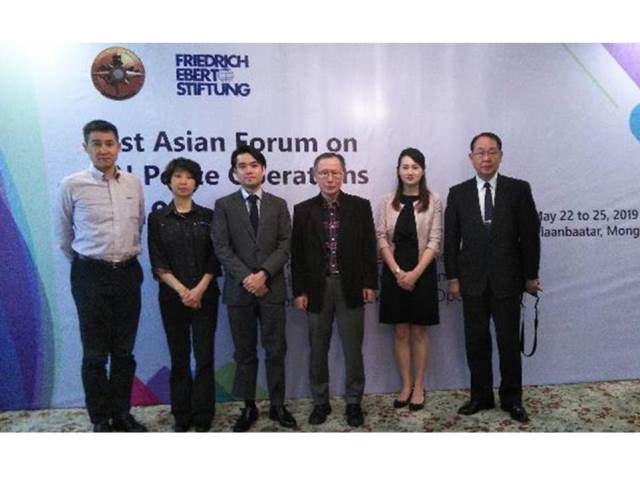
China
Mr. Liu Chao, Senior Advisor of the China Institute for International Strategic Studies
Ms. Wang Ying, Deputy Director of United Nations Association of China
Mr. You Baishun (Coordinator), Program Officer of United Nations Association of China
Mr. Zhu Qiang, Deputy Secretary-General with OBOR-100-Experts’ Forum, former Trainer of the UN Peacekeeping Police Training Center of China
Japan
Mr. Takashi Genda, Retired Major General of Japan Air Self Defense Force, Regional Director of Reven Group International Japan
Mr. Sukehiro Hasegawa (Coordinator), President of the Global Peacebuilding Association of Japan, Director of the Academic Council on the UN System (ACUNS) Tokyo Liaison Office, and the Executive Director for Academic Exchange of the United Nations Association of Japan
Ms. Yuko Sakurai, Former Deputy Director of the Economic Treaty Division of the Ministry of Foreign Affairs of Japan
Mr. Yuji Uesugi, Professor, Faculty of International Research and Education, Waseda University
Ms. Mayumi Yamada, Assistant Professor of College of International Relations, Ritsumeikan University
Korea
Mr. Kim Pan Young, Lieutenant Colonel of the Korean Army
Mr. Park Heung Soon (Coordinator), Professor of Sunmoon University, Former President of the KACUNS
Ms. Park Soon Hyang, Professor of the PKO Center, Korea National Defense University
Mongolia
Mr. Badambazar Jambaa, Major General, Deputy Chief of the General Staff of the Mongolian Armed Forces
Mr. Bat-Erdene Batkhuu (Coordinator), Colonel, Chief of Peace Support Operations’ & Military Cooperation Department (PSOMCD), General Staff, Mongolian Armed Forces
Mr. Batzaya Odsuren, Lieutenant Colonel, Senior SO, PSOMCD, General Staff, Mongolian Armed Forces
Ms. Nyamjargal Nergui, Colonel, Senior SO, PSOMCD, General Staff, Mongolian Armed Forces
United Nations
Mr. Takakazu Ito, Senior Programme Officer, Department of Operational Support, United Nations
Germany
Mr. Michael Fernau, German Deputy Ambassador to Mongolia
Secretariat
Ms. Choi Yunmi, Professor, Korea National Defense University
Friedrich-Ebert-Stiftung
Mr. Niels Hegewisch, Resident Representative, FES Mongolia
Mr. Alexander Kallweit, Resident Representative, FES Beijing
Mr. Sven Schwersensky, Resident Representative, FES Korea
Ms. Sung Dain, Project Manager, FES Korea




